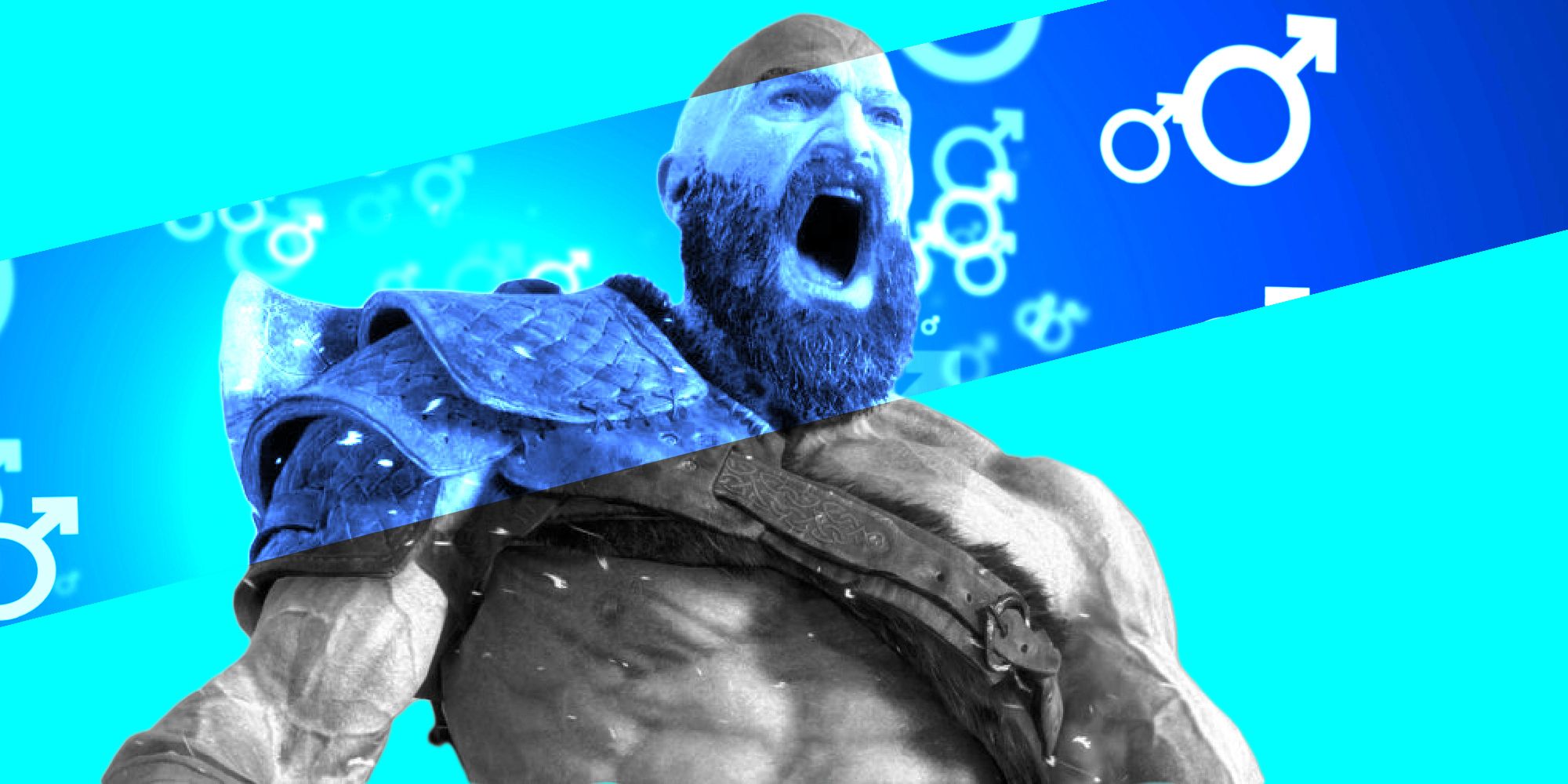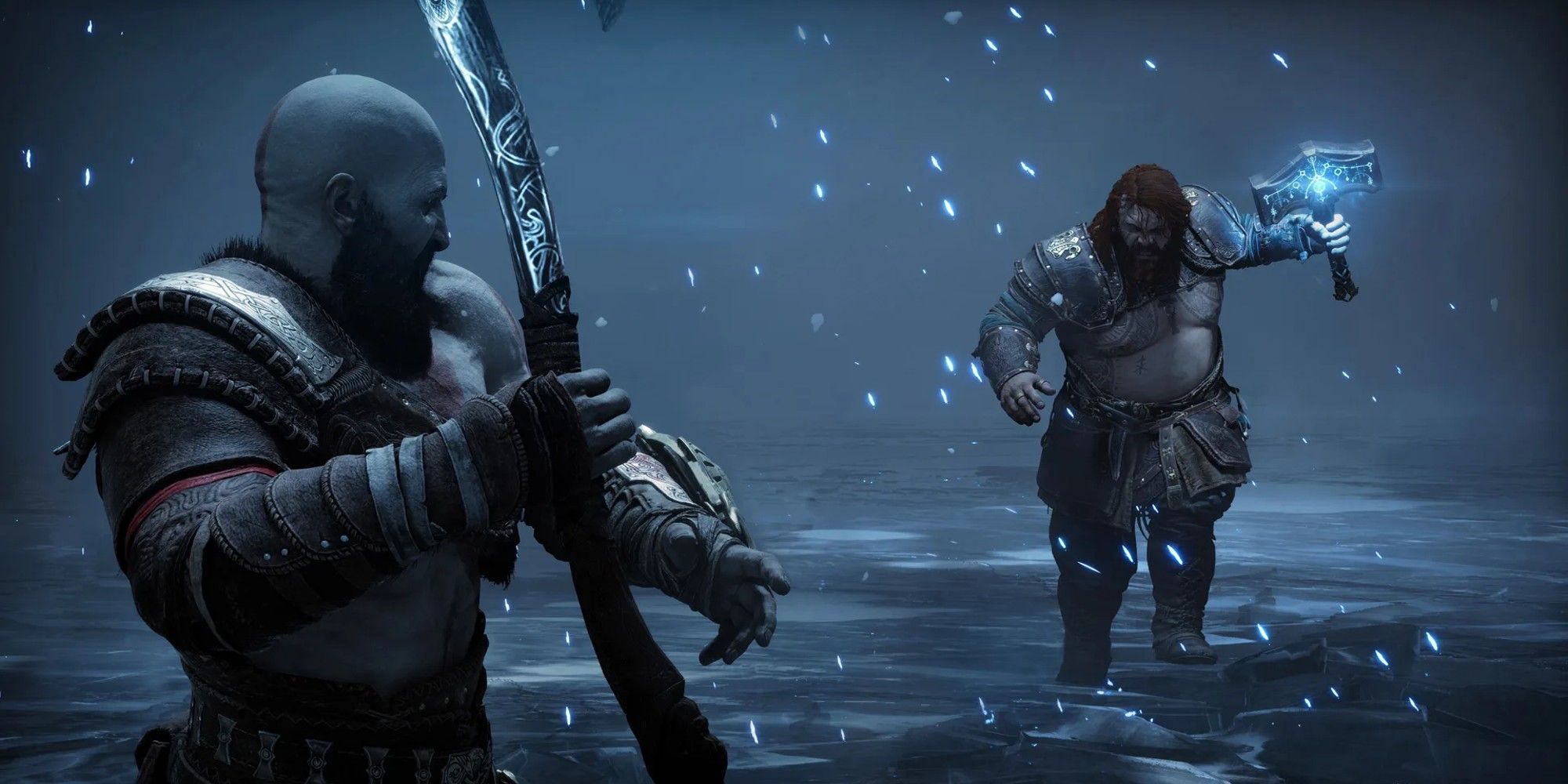God of War has had a long roar of PlayStation exclusivity, but with God of War Ragnarok set to release on November 9 and the acclaimed reboot up for grabs on Steam, I decided to see how the title holds up to a newcomer. I stumbled out of the experience in a satisfied action-RPG afterglow roughly forty hours later. I’d smashed, slashed, and parried my way through a spectacular experience filled with meaty combat, beautiful art direction and plenty of collectibles to snag.
The story, however, left me wrestling with some thoughts. Manly thoughts, though not of the stereotypical beard-growing, tree-hacking variety. God of War’s story is about parenthood, but I also think it’s doing something more; it’s a heartfelt, sincere, and charmingly clumsy exploration of godhood as toxic masculinity, and the generation-spanning impact our vitriolic culture can have.
Most of the male gods in the game (all but one of them, in fact) are violent. They seek to control the world around them. They have few positive words for each other, snarling and throwing punches at one another. Those in power are cold, treacherous figures, and we’re treated to several harrowing stories of Odin as an abuser, each leaving the bitter taste of divine legacy in our mouths. Kratos is no different, though he finds himself saddled with a different problem.
The Ghost of Sparta is a traumatised man. His body tells the story of his past. He is covered in the ashes of first wife and child, he has thick knuckles and hands that are made for killing. His eyes are sunken, his dense beard swallows all expression, and he literally hides the scars of his past in bandages. He seems to have found maturity and peace through apatheia. ‘Seems’ being the important word here.
Apatheia is the ideal state for a stoic philosopher to be in, a state of mind in which one is undisturbed by passions. The Greek stoics believed that reacting emotionally or egotistically to the world results in suffering, whereas virtuous actions result in contentment and a state of reason with the natural world. Kratos’ mythological rage has led to rampant destruction on a prophetic level, as well as countless deaths, including his own abusive father.
While I’m not interested in criticising an entire philosophical school of thought, I don’t believe his pursuit of this philosophy is exactly working – but then he may not be doing it right. By shutting himself off he drives a wedge into his relationship with his son, who nearly slips into the same murderous habits as the setting’s other men – or rather gods – of violence, abuse, and narcissism.
I’ve never killed a god, or even slain a Hydra if you can believe it. I have, however, emotionally repressed one or two things in my time. While it’s vital to take responsibility for your actions, it’s also true that refusing to express difficult feelings only makes them harder to handle down the line. It’s taken me therapy and a lot of digging to even start pulling at some of the weeds in that garden, although I understand Kratos doesn’t exactly have access to a psychologist, and I’m not sure if Mimir counts.
Kratos has feared his anger for so long that he’s blunted his other emotions, making it hard to express and deal with his grief, love, and happiness. He allows it to stop him caring for his son, and it’s not until Atreus kills his first person that we see any tenderness. Even then, Kratos insists that Atreus “closes his heart” to his enemy’s suffering, rather than talk about it.
Atreus shows us a different model of masculinity, having been raised mostly by his late mother. He’s extremely emotional (as children tend to be), but he’s also chatty, friendly, and empathetic. He’s clever too; a natural polyglot with an innate understanding of magic. Throughout the game he mimics some of his father’s tendencies in a way that’s charming, but it also underlies a concern I have about the direction of the series.
I believe the game is trying to grapple with the echoes of toxic masculinity all men need to reckon with. But if Atreus starts to mimic his father, and if Kratos never begins to address his repressed feelings, what is the game saying? That emotional empathy’s only normal in boys, not men? That kindness is something men should lose as they grow older? With that in mind, what are my hopes for God of War Ragnarok?
I don’t think Kratos needs an emo phase. I don’t think he even needs to change. I would, however, like to see Atreus find his own path into manhood rather than trying to imitate his father. The best outcome for us lads is a variety of expressions and masculinities to be available, accepted, and celebrated. In other words, the concept of a ‘real man’ needs to die.
By the end of God of War, Kratos has only begun to unravel the impact his neglect has had on Atreus. While the journey has been long, he’s only taken the first step towards connecting with him and understanding how his repression has indirectly harmed him. He’s gained a desire to be better, but only does so by breaking the cycle of violence. He has not yet begun to mend it.
God of War leaves us with a plea to try to be better. We can even view Kratos’ chain-shaped burns as a heavy-handed metaphor for reckoning with toxic masculinity. Perhaps the damage done to us, both self-inflicted and societal, will never quite fade. But we can choose to be better, and we sure as hell have an obligation to make sure that damage isn’t passed on to our children.



